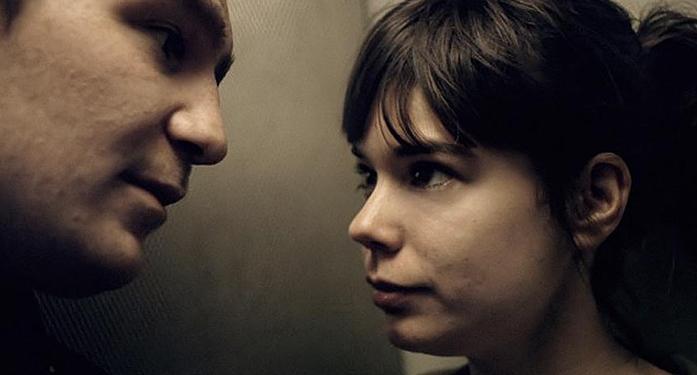Sebastian Schipper’s new drama, Victoria — opening Oct. 23at FilmScene, 118 E. College St. — is a true tour de force from both a director’s and an actor’s standpoint. The film, shot in a single take between 4:30 a.m. and 7 a.m. on the streets of Berlin, marks the directorial debut of Schipper, who previously gained fame as an actor in German cult classic Run Lola Run.Victoria begins with blurred silhouettes of bodies dancing against a blinding strobe light while a relentless techno soundtrack pounds in the background. Eventually, the camera focuses, and we see the film’s eponymous heroine dancing, seemingly entranced by the music and the atmosphere. She makes her way to the bar, orders a shot of schnapps, and awkwardly offers to buy the bartender a drink, too. She goes to the restroom and budges to the front of the line without realizing the dozens queueing behind her.
Victoria, played by a stunning Laia Costa, is a young girl from Madrid in Berlin for a few months. She works at a coffee shop but hasn’t yet acclimated to the city or made any friends. This changes when she leaves the club and meets Sonne (an excellent and strikingly genuine Frederick Lau) and his friends. While there is some foreshadowing when the guys playfully attempt to persuade Victoria a car they’re leaning up against is theirs, the group appears relatively good-natured.
Things begin to escalate when Sonne brings Victoria into a convenience store to buy some beer and, after discovering the owner is asleep at the register, steals the drinks instead. The night continues, this tension lingering in the background for the next 40 minutes or so. Sonne and Victoria grow closer and hints of a budding romance begin to manifest. The acting is incredibly nuanced, and the story is compelling despite its slow-moving nature.
Things really pick up when it is revealed one member of the group, Boxer, just finished a stint in prison and owes his protection while inside to a group of local gangsters. To repay his debt, Boxer and his friends must rob a bank and get 10,000 euros for one of the gang leaders.
Through a series of events, and largely because of her newfound attachment to Sonne, Victoria gets roped into being the getaway driver. The rest of the film flashes by at breakneck speed, and the audience is transported to Berlin and spends the next hour in dangerously immediate emotional proximity to the film’s protagonists.
The last few years have seen directors go above and beyond the conventional requirements expected from their position to make their film and employ outlandish techniques and abstractions of the form to do so. In 2013, the release of Alfonso Cuaron’s Gravity stunned audiences with its technical advances and incredible achievements in cinematography. In 2014 a new crop of films such as Alejandro G. Innaritu’s Best Picture-winning “single shot” film *Birdman* and Richard Linklater’s 12-year labor of love Boyhood blew critics away with their virtuoso filmmaking. However, in all three cases (despite being positive overall) reviews of the films were tainted with critiques accusing the director of relying too much on the “gimmick” aspect of the film.
In the case of Gravity, Sandra Bullock’s performance took the flak; with Birdman, the style as a whole some viewed as contrived; with Boyhood, critics believed the content of the story relied too heavily on the audience watching the actors “actually” grow up. Despite the three being excellent films in their own right (save perhaps for Gravity, which I, too, agree as a story is emotionally vacant and leans far too much on the genius cinematography) this recurring critique does have some merit.
All of this makes Schipper’s achievement all the more impressive. It is the mark of a true genius when the camera can roll — unedited and largely unscripted — for two hours and 20 minutes without losing the audience’s interest or taking shortcuts in the plot to wrap things up quickly and efficiently.



